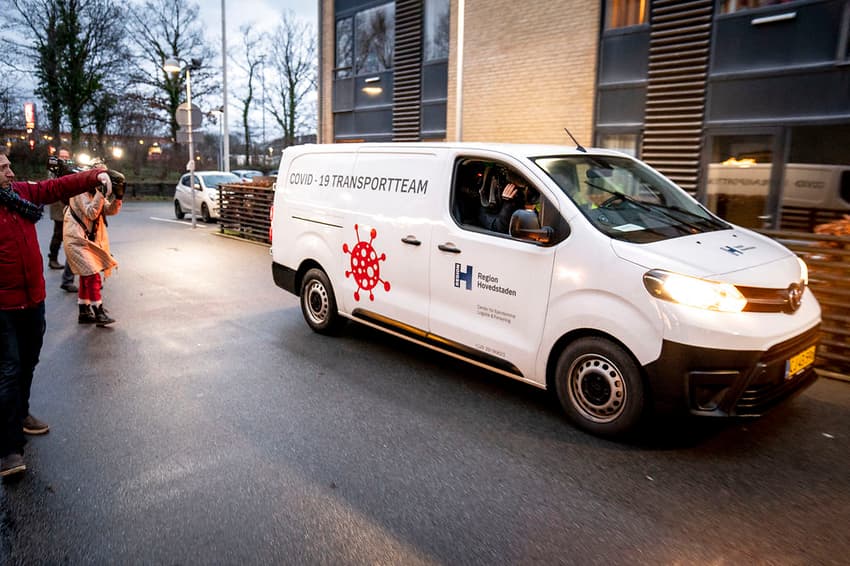Denmark close to securing enough Covid-19 vaccines for entire population

Denmark has secured a further 3.9 million doses of the Covid-19 vaccine from Pfizer and BioNTech after the EU reached agreement with the companies over the supply of new doses.
In total, Denmark now has arrangements in place to receive enough doses to vaccinate 5.25 million people. The country’s population is around 5.8 million (including children, who will not be offered the vaccine).
The agreement over the extra doses was confirmed by health minister Magnus Heunicke on Twitter.
EU indgår aftale med Pfizer og BioNTech om køb af ekstra 300 millioner vacciner. Danmark har sikret sig 3,9 mio. af doserne, som vi forventer at modtage en væsentlig del af i andet kvartal. Betyder at vi kan vaccinere flere allerede i løbet af foråret ? #COVID19dk #sundpol
— Magnus Heunicke (@Heunicke) January 8, 2021
A large number of the additional 3.9 million doses are scheduled to be delivered in the second quarter of 2021.
“(This) means we can vaccinate more people as soon as the spring,” Heunicke wrote.
Data published earlier this week showed Denmark to be leading the way amongst EU countries in terms of the proportion of its population vaccinated so far. The first Covid-19 vaccinations in Denmark took place on December 27th.
As of Thursday, 1.41 percent of the Danish population has received the first of the vaccine’s two doses.
Nyeste EU tal mht. COVID-19 vaccination. #sundpol #covid19dk pic.twitter.com/3ljL4QNhb3
— Jonatan Schloss (@JonatanSchloss) January 8, 2021
All residents at elderly care homes in the country will have received their first dose of the Covid-19 vaccine by Friday, provided they wish to receive it.
The EU’s latest agreement with Pfizer/BioNTech, announced Friday, puts in place the purchase of a further 300 million doses of vaccines for countries participating in the union’s procurement programme.
The EU Commission also approved the a second vaccine, produced by company Moderna, earlier this week, while a third, the AstraZeneca/Oxford University vaccine, could be approved by the end of January.
READ ALSO: Denmark to roll out Covid-19 'vaccine passport'
Comments
See Also
In total, Denmark now has arrangements in place to receive enough doses to vaccinate 5.25 million people. The country’s population is around 5.8 million (including children, who will not be offered the vaccine).
The agreement over the extra doses was confirmed by health minister Magnus Heunicke on Twitter.
EU indgår aftale med Pfizer og BioNTech om køb af ekstra 300 millioner vacciner. Danmark har sikret sig 3,9 mio. af doserne, som vi forventer at modtage en væsentlig del af i andet kvartal. Betyder at vi kan vaccinere flere allerede i løbet af foråret ? #COVID19dk #sundpol
— Magnus Heunicke (@Heunicke) January 8, 2021
A large number of the additional 3.9 million doses are scheduled to be delivered in the second quarter of 2021.
“(This) means we can vaccinate more people as soon as the spring,” Heunicke wrote.
Data published earlier this week showed Denmark to be leading the way amongst EU countries in terms of the proportion of its population vaccinated so far. The first Covid-19 vaccinations in Denmark took place on December 27th.
As of Thursday, 1.41 percent of the Danish population has received the first of the vaccine’s two doses.
Nyeste EU tal mht. COVID-19 vaccination. #sundpol #covid19dk pic.twitter.com/3ljL4QNhb3
— Jonatan Schloss (@JonatanSchloss) January 8, 2021
All residents at elderly care homes in the country will have received their first dose of the Covid-19 vaccine by Friday, provided they wish to receive it.
The EU’s latest agreement with Pfizer/BioNTech, announced Friday, puts in place the purchase of a further 300 million doses of vaccines for countries participating in the union’s procurement programme.
The EU Commission also approved the a second vaccine, produced by company Moderna, earlier this week, while a third, the AstraZeneca/Oxford University vaccine, could be approved by the end of January.
READ ALSO: Denmark to roll out Covid-19 'vaccine passport'
Join the conversation in our comments section below. Share your own views and experience and if you have a question or suggestion for our journalists then email us at [email protected].
Please keep comments civil, constructive and on topic – and make sure to read our terms of use before getting involved.
Please log in here to leave a comment.